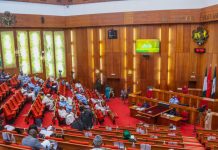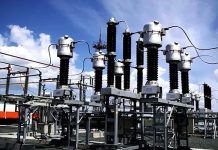AHEAD OF 2034 WORLD CUP:- Saudi Arabia to Build World’s First Suspended ‘Sky Stadium’
Saudi Arabia has unveiled plans for a futuristic football venue that promises to redefine the boundaries of sports architecture — the Neom Sky Stadium, a structure that will hover 350 metres (1,150 feet) above the desert floor.
The stadium, set to be completed before the 2034 FIFA World Cup, will be part of the NEOM megacity, specifically within the linear urban project known as “The Line.”
Planned to seat 46,000 spectators, the $1 billion arena will be powered entirely by renewable energy sources — solar and wind — in line with Saudi Arabia’s Vision 2030, a national blueprint promoting sustainability and technological innovation.
Access to the suspended venue will be via high-speed elevators and autonomous transport pods, allowing spectators to ascend into the clouds for panoramic views of the desert below.
Inside, AI-driven systems, augmented reality interfaces, and precision acoustic technology will enhance the matchday experience, merging sport with science fiction-like spectacle.
Construction is slated to begin in 2027 and finish by 2032, two years before Saudi Arabia stages the 2034 World Cup. Pending FIFA approval, the Sky Stadium could host matches up to the quarter-final stage.
Once the global showpiece concludes, the Neom Sky Stadium will transform into a multi-purpose venue, hosting sports and entertainment events year-round.
Plans are also underway for it to serve as the home ground of a future NEOM-based football club, further anchoring it within Saudi Arabia’s growing sports landscape.
Officials say the project “symbolizes Saudi Arabia’s leap into the future,” fusing eco-innovation with iconic design to showcase a new era of sports infrastructure.
Despite its breathtaking ambition, the Neom Sky Stadium has raised serious questions among engineers and rights advocates.
Building a stadium suspended hundreds of metres above a desert prone to sandstorms and extreme temperatures presents unprecedented technical and safety challenges.
There are also timeline concerns, with construction scheduled to start in 2027 and end in 2032 — leaving just two years of cushion before the World Cup.
Meanwhile, human rights groups have criticized the broader NEOM project, pointing to reports of labor violations and community displacement in other ongoing developments within the region.




























